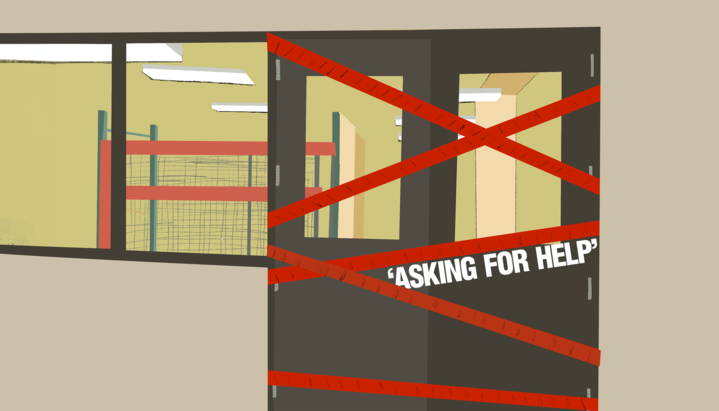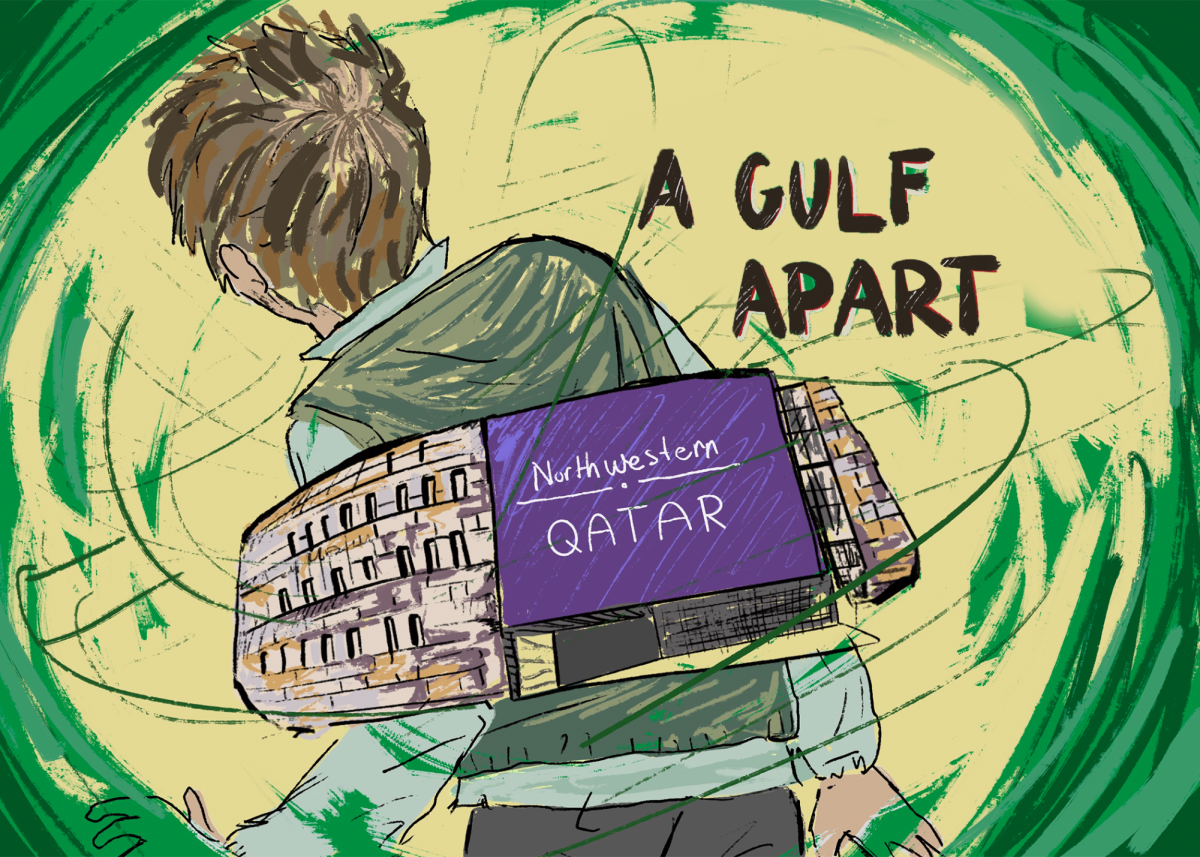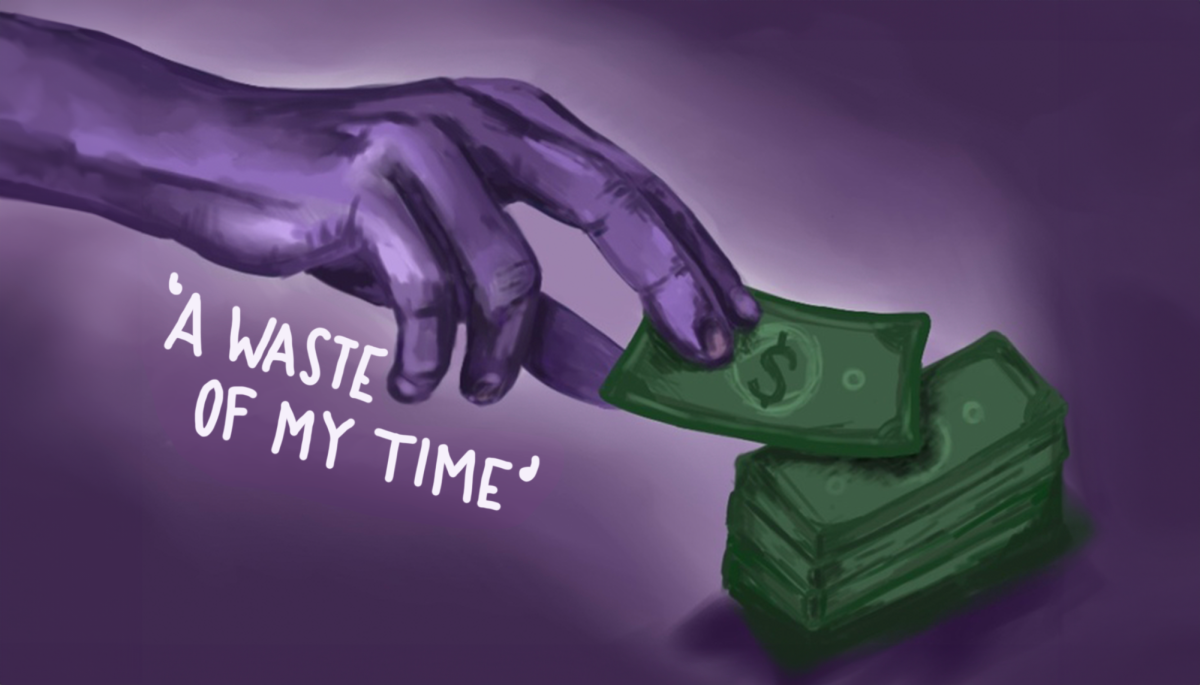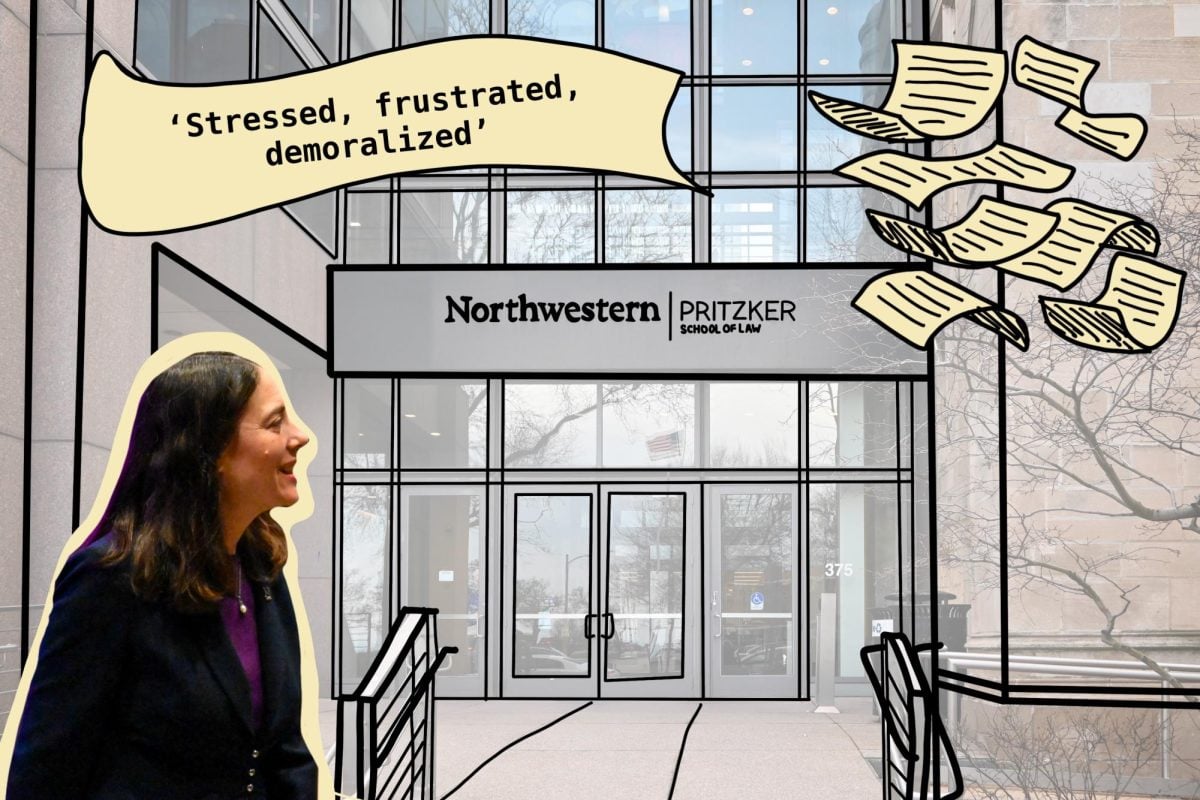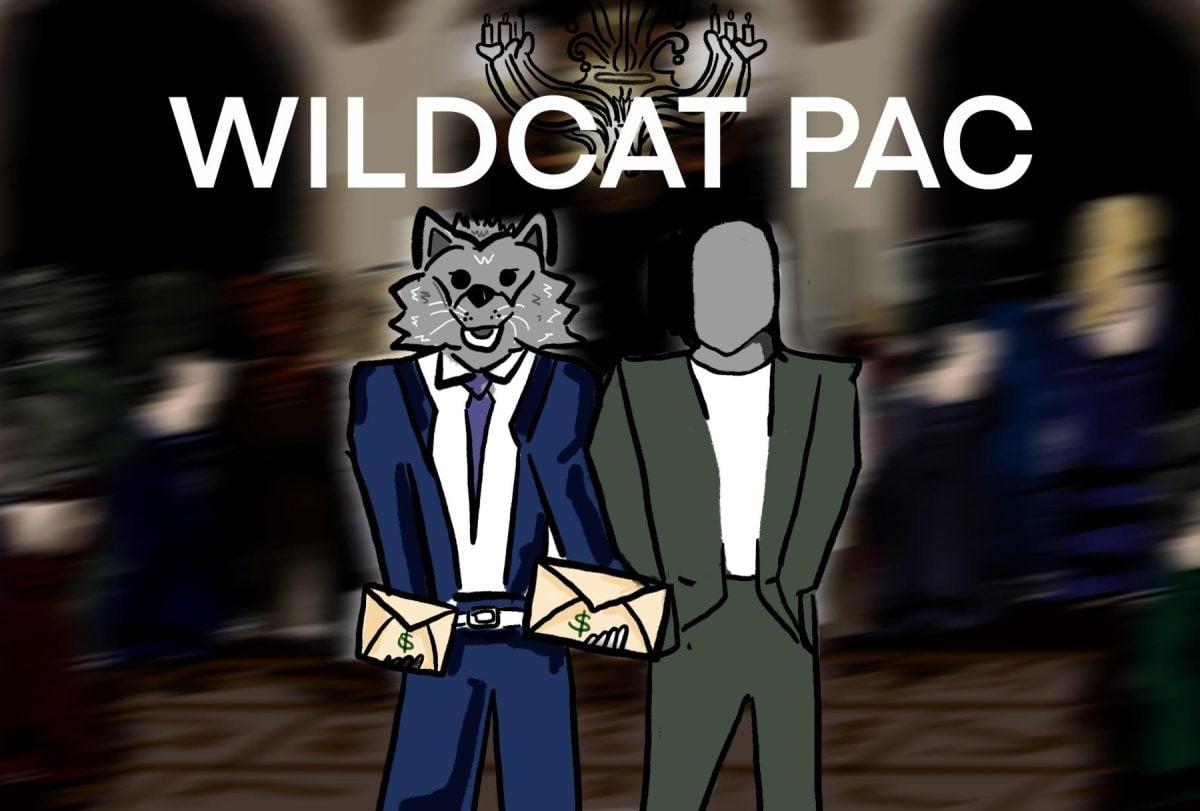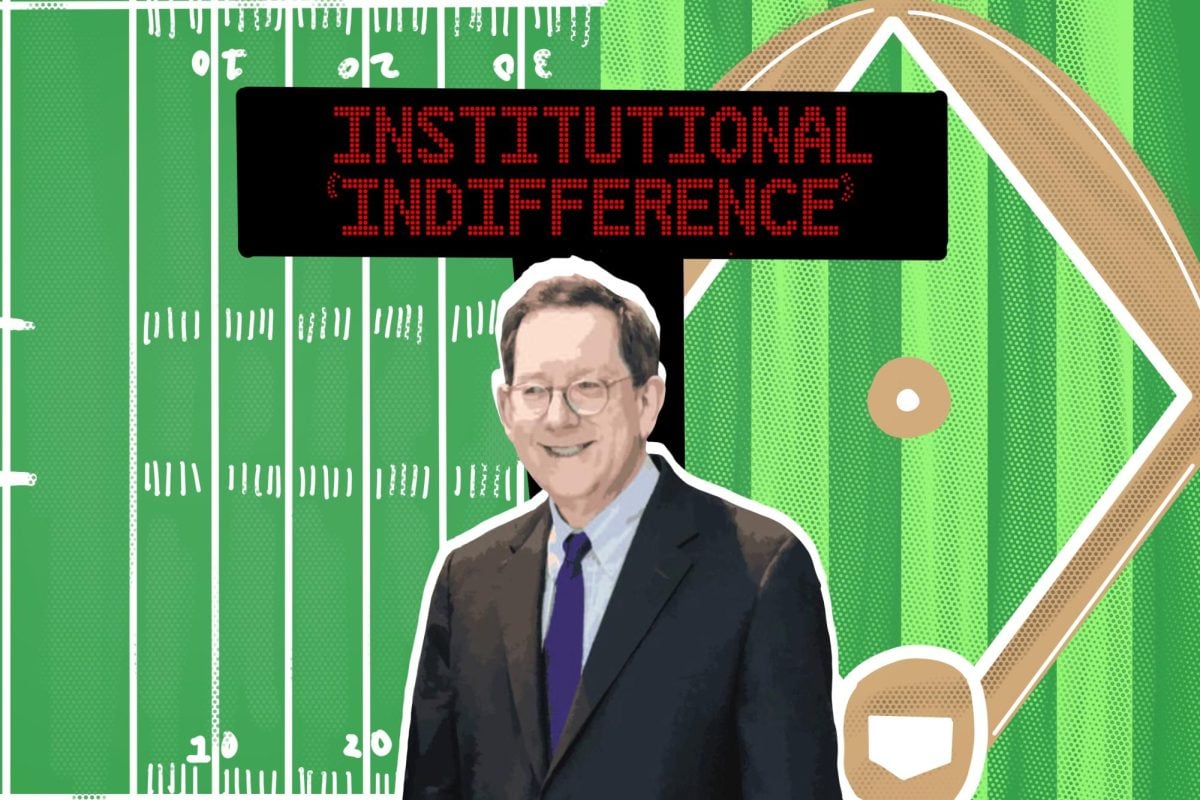A banner headline in the February 7, 1999 edition of the Chicago Tribune succinctly summarized the longtime reputation of Medill Prof. David Protess: “NU professor now a media superstar,” the boldface font exclaimed.
Protess and students in his Investigative Journalism class had spent the prior decade helping to free seven wrongfully convicted men from prison, along the way inspiring books and movies, bringing positive publicity to Medill and enticing scores of prospective students to Northwestern.
Later that year, Protess would found the Medill Innocence Project, a hybrid journalism and advocacy group that uses Investigative Journalism student reporting to help free more innocent men from prison and bring attention to the then-inconspicuous issue of wrongful convictions.
Barely a decade later, Protess’s legacy looks decidedly different. The once-king of Medill has been barred from teaching his trademark class, publicly vilified by his dean and pushed to take a “leave of absence” that few realistically think will ever end. The 29-year professor, whose face still lingers on multiple posters throughout Fisk Hall, is reportedly not allowed to enter the building.
Protess has agreed to never again teach at NU, the Chicago Tribune reported last week.
He still manages to lead an unofficial “underground” class at an on-campus location he refuses to disclose. The six NU students who attend the weekly meeting are the first batch of participants in the Chicago Innocence Project, an autonomous group with much the same mission as the Medill Innocence Project, which is continuing under new leadership.
But after years of awards and accolades, Protess’s public falling out with the University he served for three decades has stunned the NU community and left the Medill faculty starkly divided.
“I think everything about the situation is tragic,” Medill Prof. Michele Weldon said. “It’s tragic for David, the students, the faculty, the schools, the alums, all the people who are affected by the Innocence Project and individuals who hope to be recipients of the work of the Innocence Project.”
But for some who have followed the history of Protess and the Medill Innocence Project, their parting is unsurprising.
In recent interviews, some former students and colleagues painted a picture of Protess as a man whose abrasive and egotistical personality got in the way of his unassailable intentions and obvious talents. That personality, combined with Protess’s unexpected success, earned the professor enemies in law enforcement, local government and even the Medill faculty, the sources said. It also led Protess to push the boundaries of acceptable classroom activities — a practice which continued due to the University administration’s decision not to oversee the unique class, critics said.
“When you’re allowed to run a program without any real oversight, this is the kind of thing that happens,” said former Investigative Journalism student Jennifer Merritt (Medill ’98), who is now a markets editor at the Associated Press. “Something is going to go wrong, somebody is going to cross the line, and you’re really going to lose your credibility.”
Alec Klein, the Medill professor tasked with filling Protess’s shoes, at least temporarily, said his job will be to restore that credibility. In his first interview since taking over the class this spring, Klein said he plans to establish strict guidelines governing ethical standards and safety procedures.
“The goal is to restore trust in the class and the project and rebuild it so that it becomes again a point of pride for students, faculty, alumni, Medill and Northwestern,” said Klein, cautioning he was not commenting on Protess’s work. “It’s a crown jewel for Northwestern, and we need to fix it.”
Klein added he plans to ensure that both the Investigative Journalism course and the Medill Innocence Project operate as journalistic – not advocacy – entities.
Multiple former students and colleagues said Protess blurred the line between journalist and advocate. The critics contend Protess parted with Medill because he and his Innocence Project never really fit in there, despite the professor’s attempts to lead the Innocence Project as an advocacy group and Investigative Journalism as a reporting class.
Ultimately, Protess’s insistence on fitting a square into a circle — an advocacy organization into a journalism school — brought about his departure from both.
The fundamental question
While Protess claims to be both an advocate and a journalist, his background points toward the former.
The Brooklyn, N.Y. native, now 65, earned his undergraduate degree in political science at Roosevelt University, where he served as president of the student government. Later, he obtained a doctorate from the University of Chicago in social policy.
But in 1981, following brief stints as a research director at the Better Government Association and a political science instructor at Loyola University of Chicago, he joined NU as a journalism professor.
Like many Medill professors, Protess augmented his teaching position with a job in the industry. In his case, the job was at the investigative monthly Chicago Lawyer magazine, where Protess worked with award-winning journalist Rob Warden.
In 1990, Warden and Protess investigated the case of David Dowaliby, who had been convicted of killing his 7-year-old daughter. The pair’s reporting uncovered evidence that led to the overturning of Dowaliby’s conviction the next year.
“We watched him walk free, and it changed all of our lives,” Protess said of the Dowaliby case, one of the first major exonerations in the country and the subject of a television movie starring Shannen Doherty and Kevin Dillon.
After Dowaliby, Protess converted his Investigative Journalism class into a vehicle to research potential cases of wrongful conviction. The students found success quickly, helping to free six more men that decade.
Their work garnered international media attention in 1996, when the students helped free four men, known as the Ford Heights Four, after securing confessions from those actually responsible for a gruesome double murder. The attention came again three years later with the exoneration of high-profile death row inmate Anthony Porter, whose case has been credited with convincing former Illinois Gov. George Ryan to institute a moratorium on the use of the death penalty in the state. It was that case that earned Protess the “media superstar” label.
But the Porter case nearly unraveled when prosecutors discovered the class’s private investigator, Paul Ciolino, had used a videotape of an actor claiming to have seen alternate suspect Alstory Simon at the murder scene to get Simon to confess. Simon quickly recanted his confession, but he was convicted of the murder — a conviction he continues to fight today.
Ciolino’s tactics led some to question the characterization of Protess’s work as journalism. Those early skeptics included then-Medill Dean Michael Janeway, who considered canceling the course, partially because he felt it was engaging in advocacy.
Janeway left Medill in 1997, and Protess enjoyed strong support from his replacement, Ken Bode.
“My feeling was that the kind of journalism that Protess was teaching is exactly what needs to be available at a top-drawer journalism school,” Bode said.
But even as Protess gained more support and attention, the journalism-or-advocacy question lingered.
In the aftermath of the Porter case, when the professor first established a formal group to work on wrongful convictions, he did so in NU’sSchool of Law, co-founding the Center on Wrongful Convictions with Warden.
Less than a year later, Protess left the Center on Wrongful Convictions to establish the Medill Innocence Project. The project, supported by a grant from the Chicago-based Alphawood Foundation, engaged in advocacy such as lobbying for a ban on the death penalty, signing amicus briefs before the U.S. Supreme Court and, most importantly, working on behalf of individual people who it believes has been wrongfully convicted.
But it did so based on evidence uncovered by student reporters in an Investigative Journalism class that featured “absolutely no advocacy,” Protess insisted.
“The goal in that class is to find the truth,” he said.
The professor, who led both organizations, worked hard to make the relationship function. He used a simple model: The students dug up information about a case, and the Innocence Project decided how to use the evidence most effectively. That model led to five more exonerations and a real-world investigative reporting education for the hundreds of students who flocked to the popular class.
“We viewed our work as journalism,” said former student Mike Saccone (Medill ’05), now a spokesman for the Colorado Attorney General’s Office, echoing a refrain repeated by many former students. “David told us early on in the course that we weren’t going to be rewarded for finding evidence to free someone. We were trying to move the ball down the field — in one direction or the other.”
But other former students pointed to several problems with the set up. For starters, there was the formal affiliation with the advocacy-minded Innocence Project, which provided funding for the reporting done by the Investigative Journalism class. Plus, the “heart and soul” of the class, as former student Diane Haag Libro (Medill ’00) put it, was Protess — an outspoken advocate.
Then there was the fact that the supposedly journalism class never really produced any journalism. While the Innocence Project now publishes news stories on its website, the site was not established until 2008. Before that, the only “publication” of student work came in the form of supplying information to outside media organizations.
“I don’t think the class has very much to do with journalism,” Liana Balinsky-Baker (Medill ’10), a former student who is now a reporter at Reuters. “In every other Medill class, you end up with a final project that’s an article.”
Most importantly, some former students said the Investigative Journalism class shed its journalism label by actively seeking to influence the legal process, as opposed to simply raising questions about it. An example of that is how the class often worked closely with defense attorneys but mostly ignored prosecutors, the critics said.
“I do believe the core of the class is to find the truth,” said Merritt, the former student. “But there’s no question in my mind, or in anyone’s mind, besides maybe David’s, that the goal of the class is to free innocent prisoners.”
Of the dozens of innocence projects in the United States, only three are housed in journalism schools: the Medill Innocence Project, the Justice Brandeis Innocence Project at Brandeis University and the Innocence Institute of Point Park University.
At Medill, Protess’s advocate mindset fueled his passion for freeing wrongfully convicted prisoners. To do so, he sometimes encouraged his students to rely on questionably ethical reporting tactics, according to multiple former students and other sources familiar with the class.
While concern about the tactics never appeared on students’ universally positive Course and Teacher Evaluations, it often prompted academic debate about the goals and boundaries of the class, the sources said.
Safety first
As Protess toed the line between journalism and advocacy, he also dealt with the issue of student safety.
While most NU courses center on work in a classroom or controlled off-campus environment, fieldwork in Protess’s Investigative Journalism class often took place in uncontrolled settings. As time passed and universities across the country became more conservative about student safety, the class continued to take up cases in areas such as the South Side of Chicago and Gary, Ind. Students occasionally interviewed alternate suspects — by definition, people who they believe may have killed.
“If anything was going to get the program, I imagined it would be from a safety perspective because you were doing real stuff,” said former student Greg Lowe (Medill ’05), who is now a grant writer for the nonprofit Summer Search. “I don’t think I ever personally ended up in any situations where I felt unsafe, but it was on my mind, and I think there probably were other people in situations that could have been dangerous.”
Despite the inherent safety concerns, NU administrators never reviewed the course’s safety procedures. If they had, they would have encountered a short and unorganized collection of guidelines, according to sources with knowledge of the class.
Starting in 2003, teaching assistant and private investigator Sergio Serritella trained the students in “ghetto 101” and accompanied them in situations that might be dangerous. Serritella’s presence was comforting, former student Jessica Hunt (Medill ’09) said.
“We didn’t have any safety problems,” said Hunt, who is now working for Teach for America in Minneapolis.
But in general, it was far from routine for Protess to send a private investigator with the students. Even when three students traveled to Las Vegas last quarter to interview an alternate murder suspect, they went alone.
Protess said he always stresses the importance of safety. He pointed out that no students have been harmed while doing classwork. But safety concerns have led Investigative Journalism students to take at least two actions that would normally be deemed illegal or unethical.
In a southern Illinois forest preserve in May 2004, students recorded a conversation with an alternate suspect without his consent, usually a crime in Illinois, so Serritella could hear the conversation and intervene if it got out of hand. And in 2009, a student posed as a ComEd worker to obtain a source’s address, partially out of concern about the dangerous neighborhood.
Former students said one of the best things about the class was that it took them out of their comfort zone.
“One of the really great lessons in class is to teach you not to be scared of situations that the world has taught you to be scared of,” said Jesse Abrams-Morley (Medill ’05), who is now clerking for a federal judge in Philadelphia. “There’s something really powerful about going there, doing the work and realizing that most of the people are just like you and me.”
Protess being Protess
Dealing with safety issues, ethical boundaries and the journalist-advocate line may have been easier if the professor enjoyed universal support.
But in various interviews, some former students and colleagues described Protess as a polarizing figure whose easy-going approach and dismantling charm was sometimes betrayed by a penchant to be “pugnacious,” “abrasive” and, most commonly, “a pain in the ass.”
The volatile personality flared up in 1996 when Hollywood producers expressed interest in making a movie about the Ford Heights Four case. When the three students who worked on the case hired a literary agent to protect their ability to discuss the case in the future, Protess publicly accused them of greedily seeking to profit from the misfortune of others. Today, he calls the incident the “single worst mistake” of his career.
In addition to occasionally damaging relations with students, Protess’s rough personality sometimes rubbed fellow professors, administrators and government officials the wrong way, Ciolino said.
“Dave, throughout the years, got a lot of heat for being Dave. Sort of like Manny being Manny,” said the private investigator, referencing the controversial and recently retired Red Sox slugger.
Protess brushed off the criticism.
“I’m a muckraker,” he said. “I’m not a people-pleaser. I’m not here to make friends.”
Medill Prof. Doug Foster, a strong supporter of Protess, said his friend’s work is “controversial by nature.” But several other Medill professors said Protess’s seemingly egotistical attitude and desire to bring attention to his work had divided the faculty for years.
It also led some prosecutors to think Protess was trying to show them up, critics said.
Dick Devine, a former Cook County state’s attorney who went up against the professor on several cases, said he never operated with an “overall viewpoint toward an entity like the Innocence Project. You look at each case and the facts of each case, and you deal with that.”
But Ciolino said personal issues definitely caused prosecutors to go after Protess and his Innocence Project.
“Prosecutors have memories like elephants — you shame them, you embarrass them, they never, ever forget it,” he said. “It was a matter of time before they got Dave.”
‘Fishing expedition’
By “getting Dave,” Ciolino was referring to a subpoena filed in May 2009 by Devine’s successor, Cook County State’s Attorney Anita Alvarez.
Alvarez filed the subpoena in response to defense attorneys who had cited evidence gathered by Investigative Journalism students to ask a judge to reopen the conviction of Anthony McKinney, who was sentenced to life in prison for the 1978 murder of a Harvey, Ill. security guard. The subpoena asked for 11 types of student documents related to the class’s three-year investigation of the case, including homework, grades and syllabi.
Sally Daly, an Alvarez spokeswoman, said at the time that prosecutors felt they needed to examine the students’ techniques and motivations after hearing from witnesses that the students engaged in unethical behavior.
“At the end of the day, all we’re seeking is the same thing these students are: justice and truth,” explained Daly, who declined to comment for this article.
But Protess thinks there was a different reason: revenge for years of students proving prosecutors wrong.
“I think what’s in (Alvarez’s) mind is, ‘How can I destroy the Medill Innocence Project?'” said Protess, noting there is more evidence of innocence in the McKinney case than on any other case he’s researched. “The rest of it is a contrivance.”
Whatever her motivation, Alvarez’s subpoena managed to shift the focus from McKinney’s potential innocence to Protess’s reporting methods.
Protess and NU attorneys spent months together fighting the subpoena on the grounds the documents had not been shared with anyone and thus amounted to internal reporter’s notes. But the University changed its position in October when it learned that Protess had, in fact, shared the records with defense attorneys and then lied about it to avoid turning over the documents.
Protess maintains his false statements were due to memory lapses. Nevertheless, Medill Dean John Lavine decided the evidence of lying and doctoring emails warranted preventing Protess from teaching his class in the spring.
“The bigger story is that the state’s attorney got exactly what she set out to do,” said Foster, the Medill professor and Protess supporter, after hearing about the professor switch. “Hit with a sledgehammer, go on a fishing expedition and drive a wedge between a professor and his university.”
The ‘Quotegate’ factor
Denouncing a county prosecutor as vindictive is one matter. But some Protess supporters are also claiming Lavine used the McKinney case as an excuse to settle personal grievances against Protess.
In particular, the supporters charge Lavine suspended Protess from teaching because of Protess’s role in the 2008 “Quotegate” scandal about Lavine’s use of quotes in a Medill alumni magazine article about an advertising class. Prompted by a column in The Daily, Protess contacted the students in the class and determined none of them said the quotes Lavine attributed to them.
An administrative committee formally cleared Lavine of any wrongdoing, but Protess publicly disagreed. Multiple Medill faculty members, who asked to speak anonymously for fear of retaliation, pointed out that others involved in Quotegate lost their positions on the faculty.
Last month, Protess called for an independent review of his suspension, in part to look into whether Lavine acted “in retaliation” for Quotegate. More than 35 investigative reporters joined Protess in that call; one of them, famed investigative journalist Lowell Bergman, said he thought Lavine’s handling of Protess resembled a “star chamber proceeding.”
When asked whether personal reasons influenced the professor switch, Lavine wrote in an email his decision “was made solely on the basis of the record that came from the Innocence Project computers and (Protess’s) consistent misrepresentations.”
Other Medill professors pointed out Lavine stood together with Protess in fighting the subpoena for more than a year before learning Protess had lied to him.
“At one point, John said, ‘If David’s going to jail, I’m going with him,'” Medill Prof. Roger Boye recalled. “He was extremely supportive, so I don’t buy this line that it’s about retribution.”
‘Checks and balances’
Other professors don’t doubt Lavine’s motives but are upset about the way the administration handled the professor switch. Last week, the NU Faculty Senate passed a resolution noting “deep concern” with the impact the process may have on academic freedom at NU.
The situation has “further divided an already divided faculty,” Foster said.
Some have also expressed fear that the loss of such a famed professor may have a negative impact on admissions. Multiple former Investigative Journalism students cited Protess and a desire to take the class as their biggest reason for attending Medill.
“The Innocence Project is such a big part of their marketing package,” said Medill senior Kelsey Farabee, who took the class in the winter. “When you go to the Medill website, it’s his face staring at you.”
There has been no indication of any impact on admissions, University spokesman Al Cubbage said.
“There is no doubt that the work of the Innocence Project is something that has been important in establishing the very stellar reputation of Medill and what our students do,” he said. “But I’m confident that that’s going to continue.”
Cubbage and Lavine each expressed strong support for the new professor, Klein, a former investigative business journalist at The Washington Post and best-selling author who taught the class in the fall when Protess was on sabbatical.
The format of the class will not change, said Klein, adding his students have made “huge progress” on a wrongful conviction case this quarter.
Laura Samson, the executive director of the Alphawood Foundation, said the organization is unsure if it will continue to fund the Medill Innocence Project under Klein.
Klein said he has run the class under tighter safety procedures and rigorous ethical standards, and he plans to continue to make minor changes.
It is unclear if the administration has played any role in the reforms. Lavine declined to answer questions about whether he has asked Klein to change anything about the class. James Young, NU’s associate provost for faculty affairs, said the “deans of individual schools have authority over curriculum.” Cubbage said as a general rule, professors dictate classroom guidelines. University President Morton Schapiro declined to comment.
“I’m keeping them in the loop,” Klein said. “We’re investigating murders, so I want the administration to know what’s going on.”
Merritt, the former student, said she hopes the administration establishes “checks and balances.”
“Some clear rules would do it some good,” she said. “It can’t just be one person running it.”
Meanwhile, it is unclear when the focus of the McKinney case will shift from the tactics of a group of NU students to the guilt or innocence of McKinney. Prosecutors have requested another six weeks to review NU student documents before deciding if they will request more.
“The fact that Anthony McKinney is still behind bars is a sin,” said former student Evan Benn (Medill ’04), who worked on the McKinney case. “The fact that the case has been derailed for this many years and it’s taken the focus off of the plight of an innocent man, it’s a shame.”
Benn, a staunch supporter of Protess, added that “seeing the relationship between David and the University unravel has been very hard to watch.”
While most expect Protess to continue to make a difference through his Chicago Innocence Project, the controversy with NU will likely remain a blemish on his career. Foster called the situation the “dismantling of a legacy.”
Still, many former students and colleagues said Protess will ultimately be vindicated as someone who, despite some serious flaws, helped start a national movement against gross injustice.
“If you have a picture of fighting wrongful conviction in the dictionary, Protess should be the first one listed,” Ciolino said. “If you look at this thing 30 to 40 years from now, Protess will be a beloved figured that they’ll be building statues about.”
Note: This article has been edited for clarity. The original version misstated the date Cook County State’s Attorney Anita Alvarez filed a subpoena. The correct year is 2009. The Daily regrets the error.











